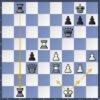Indian chess is currently enjoying an unparalleled golden age, a period marked by a seemingly endless stream of prodigious talent and remarkable international triumphs. From Olympic golds to world championships, the tricolor flag has become a familiar sight atop global chess podiums. Adding another shimmering jewel to this crown is the young prodigy, **Divya Deshmukh**, who recently captivated the chess world by clinching the **FIDE Women`s World Cup**. Her victory wasn`t just a win; it was a statement, a testament to raw talent defying even its own modest predictions.
From Humble Goals to Grandmaster Status
Before this seismic triumph, Divya was already a recognized force in the Indian chess circuit. A key component of two successful Olympiad teams, earning bronze in 2022 and contributing significantly to the gold in 2024, her capabilities were certainly apparent. In the demanding 2024 Olympiad, where seasoned players like Harika Dronavalli and Vaishali Rameshbabu faced challenges, it was Divya who stepped up, securing a phenomenal 9.5 points out of 11 on her board. Yet, as recently as the start of 2025, her own aspirations, as she candidly admitted, were simply to “play in a lot of tournaments and improve my rating.” A fittingly understated goal for someone about to turn the chess world on its head.
Navigating the “Nightmare Draw”
The path to the World Cup crown, however, was anything but straightforward. Dubbed a “nightmare draw” by many analysts, Divya, the 15th seed, found herself navigating a minefield of chess titans. She was slated to face some of the circuit`s most formidable players in successive rounds, a challenge that would test the mettle of even the most experienced grandmasters. But Divya, with a calm composure that belied her youth, systematically dispatched high-ranking adversaries.
- **Zhu Jiner**, the formidable Chinese talent and a player in exceptional form on the FIDE Circuit, was overcome in a tense tie-break.
- Her Indian compatriot, the seasoned **Harika Dronavalli**, succumbed in the quarterfinals after Divya demonstrated unwavering solidity.
- The semifinal clash against **Tan Zhongyi**, the World Championship runner-up, was a rollercoaster of emotions, which Divya decisively closed out without needing tie-breaks – a feat previously achieved by eventual champions Alexandra Kosteniuk and Aleksandra Goryachkina.
Each match was a grueling test, a masterclass in resilience where Divya not only survived but thrived, her confidence visibly escalating with every major scalp claimed.
The Grandmaster Shortcut
And then, the ultimate plot twist: the World Cup title automatically confers the coveted **Grandmaster (GM) title**. Imagine the relief – or perhaps, the slight chuckle – of achieving the pinnacle of chess recognition not through three arduous norms, a painstaking process requiring specific performances in high-level tournaments, but simply by being the best in the world`s toughest knockout tournament. A rather efficient shortcut, wouldn`t you agree?
Divya Deshmukh now stands as India`s 88th Grandmaster, and remarkably, only the fourth woman to achieve this esteemed status among a predominantly male roster. Adding a delightful layer of narrative irony, two of those three other Indian female GMs (**Koneru Humpy** and **Harika Dronavalli**) were opponents she had to overcome on her path to the title, making her ascent truly a statement of generational shift.

The Horizon of Possibilities
While the congratulatory messages may have prematurely crowned her “World Champion” (a title still held by Ju Wenjun), her World Cup victory is undeniably a colossal achievement. It grants her a direct spot in the next year`s **Candidates Tournament**, the gateway to challenging for the World Championship crown itself. This is a monumental leap for a player who, just months ago, was primarily focused on rating improvement.
Divya herself remains grounded, acknowledging the tactical refinements still needed in her game – “sharper endgames” and “closing out advantageous positions more often” are on her self-improvement checklist. But with age undeniably on her side, and the likely distinction of being the youngest participant in next year`s prestigious Candidates tournament, the horizon appears limitless.
As she aptly put it, “I didn`t even have one norm (coming into the event) and all I was thinking of was `Oh, when can I get my norm,` and now I`m a Grandmaster… I`m hoping this is just the start.” For Indian chess, and indeed for the global chess community, Divya Deshmukh`s World Cup triumph is not an endpoint, but a compelling overture to what promises to be an extraordinary career, solidifying India`s formidable presence on the world chess stage.











